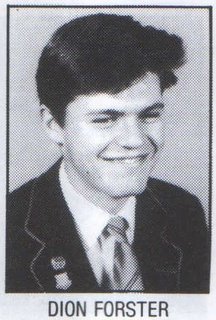 This week has been amazing in so many ways. I have met and interacted with great scholars. I have spent time in ancient churches and centres of learning. I have discovered new friends, and been reaquanted with old ones. I have learnt so much, and had a few chances to teach.
This week has been amazing in so many ways. I have met and interacted with great scholars. I have spent time in ancient churches and centres of learning. I have discovered new friends, and been reaquanted with old ones. I have learnt so much, and had a few chances to teach.
However, as I think back on this week the experience is run through with one overarching idea - the fact that everyone, and every story, matters.
Before leaving for South Africa I was asked to write a chapter for a book on HIV / AIDS. I have been doing some research and reading, talking with Christian AIDS workers, and spending time with persons who are HIV positive, and those who have felt the great loss of loosing a loved one to this dissease. The reality is that very few of those persons' stories will ever be told. That matters. However, at another level their stories make up the very fabric of who each one of us is. They are our world.
This week I have been moved to tears (in private - this is England after all!) whilst reading Pehlippe Denis little book 'Never too small to remember: Memory work and resilience in times of AIDS' (2005, Cluster Publications, Pietermaritzburg). The book tells of the marvelous work that is being done among AIDS orphans in Kwazulu Natal through the use of 'memory boxes'. The aim of the project is to build a greater resilience in children and child headed households where both parents have been lost to AIDS. Of course there is very little that could ever be done to remove the agony of such a loss, but there is a great deal that can be done to help such young people. Naturally pragmatic and practical solutions seek to educate, clothe, and feed the children. This is necessary. It challenges me to think if I could not give and do more to help make their lives a little easier. But such generosity does not deal with the deep hurt and stigma associated with their loss. Morover, if the children themselves are HIV positive they will need more than just food, clothing, and education, to make meaning of their lives, to do more than just survive, but to truly live.
I have spent quite a lot of time with my friend Clive Marsh this week. He and I have been talking about the importance of experience and memory as a source of healing, yet also an essential source of good theology.
The memory box, which is the 'memory tool' Philippe Denis uses, allows the children and their care givers to make use of narrative, story-telling, to recount the memories that they have of their parents (both the good and the bad). It allows them to articulate, analyse, understand, and move through these memories (note that I don't say move beyond - to move through means that one takes something of the memory with you into your future). In doing so the children are given a far greater resilience to cope with their past, make choices in their present life, and form a new future. They can learn to live with the virtues and grace of belonging to the wider community (which as you know is essential as an expression of ubuntu in African communities), but they can also learn how to solve the problems that their parents and caregivers faced.
Memory is a wonderful thing. Today I remember where I come from. The picture above was taken in 1989. I was in my final year in high school [yes, I had a porno 80's hairstyle - although the mullet I had on my wedding day was even worse!].
So much has happened in the 18 years since then, and so much had gone before. My parents were divorced when I was 2, we left Zimbabwe, the land of my birth, came to South Africa to start again and encountered many more severe challenges and hardship than most. I was raised in my early years by my mother who struggled - the struggle was within herself and often caused great hardship around her. She was married, and in relationships, many times. My early childhood is filled with memories of terror, physical and emotional violence, yet also with tenacity and a will to live - it was however, also the dawning of my faith. I remember praying ernestly for the first time when I was 9. My mother's husband at the time had come home in a drunken rage and had beaten her to the point of breaking her back. My brother of 11 had tried to defend her yet was unable and also faced the madman's wrath. I was afraid for my life, and for the life of my mother and brother, and so in desperation I grabbed a hammer and hit the man on his head. He fell to the ground bleeding.
I remember praying, a frightened 9 year old, fearful that everyone was dead - my mother, my brother, and my mother's husband. Somehow the knowledge that there was a person - not a power but a person - named Jesus who could see, hear, and answer my prayers gave me the hope that I needed to get beyond that night.
Of course, such scars remain with one. By the time the picture above was taken I had been off the rails a few times. I had used (and abused) most of the drugs that were popular in the 80's, sought refuge in popularity and rebelion, and given my poor father and step mother many sleepless nights and gray hairs! I had been arrested, asked to leave church groups, and caused a lot of unhapiness to many people. I also had two tatoos and many earings as a reminder of those times.... In some ways it was because I had not built up a spiritual resilience that I sought comfort and meaning in physical and psychosocial remedies.
Perhaps it was when I discovered Christ, not just as a saviour, but as a friend, that my life changed most. That was in 1987. It was the first time that I knew that I was loved unconditionaly, that there was no threat, no need to impress, no expectation, just love.
Of course a great deal has taken place since that photo was taken. I have been married to Megan for almost 14 years now. She completes me in ways I could never have imagined. I have my two miracle children, Courtney and Liam, both of whom have stretched my heart and filled me with a new kind of wild passion. This passion moves me inwardly, to find ways of loving them and caring for them by showing them the kind of grace I have experienced in Christ. Yet, it also moves me outwards - to seek to change our world so that what they grow into will not be a place of fear, hate, and danger - this too is the work of Christ in me.
My life is very different now - as I write this I am sitting in one of the oldest, and most prestigious, academic institutions in the world, Christ Church, Oxford University. Who would ever have thought? But I am different in otherways: I am taller, fatter, balder, and richer than I was when I was 9... I also have more debt... But, I am also happier, more grateful, and much more privelaged. Remembering who I am helps me to savor these moments and experiences. They cannot be taken for granted!
Even though my life is different, I guess I am still the same. I am still Dion, I remember my past and long for a better future. I still enjoy adventures and love to pray. My memory box makes me more resilient. God has never forsaken me - God heard my prayer when I was 9, God heard my prayer last year when Liam was born, God still hears my prayer today.
Labels: AIDS, Christ, love, memory, Oxford, thanksgiving
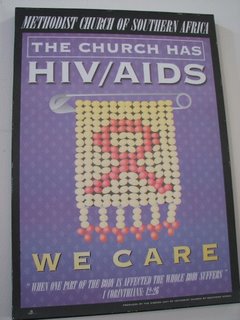
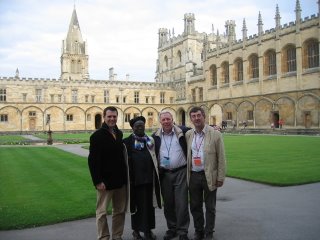
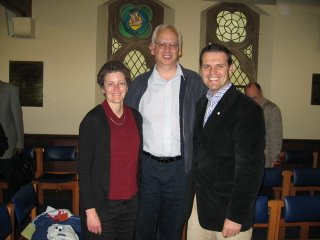
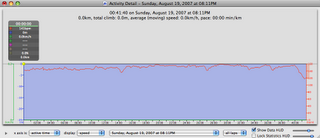
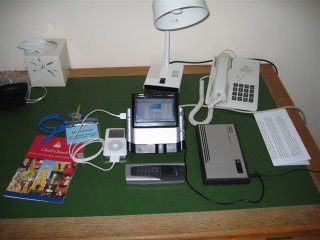
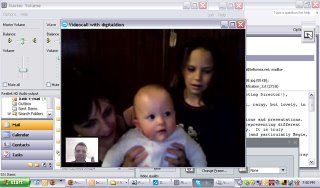
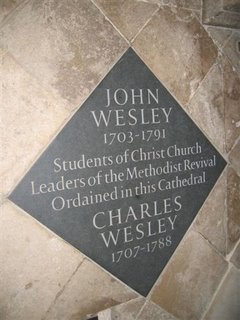
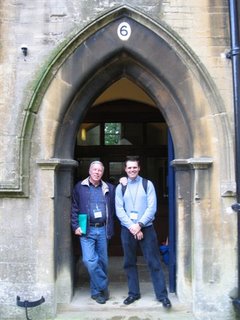

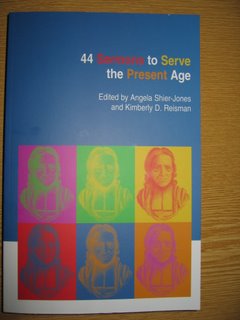
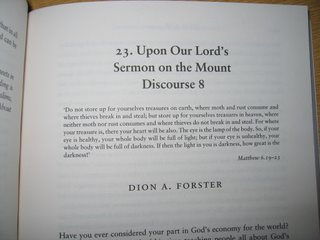

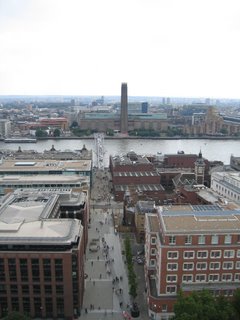
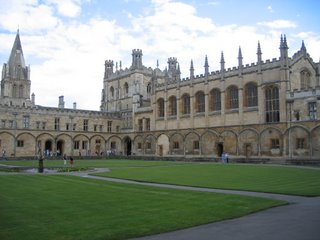
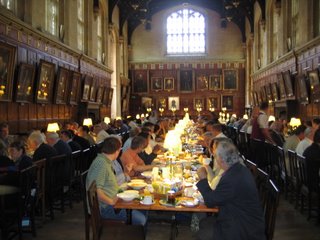
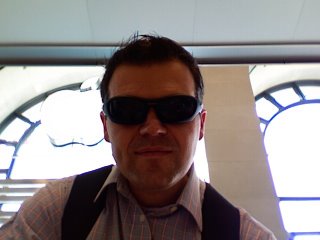




 .
.
 .
.




